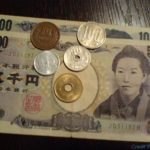Friday’s trade saw AUD/JPY within the range of 83.23-85.08. The pair closed at 84.50, soaring 0.23% on a daily basis, while marking a third consecutive trading day of gains. The daily high matched the high from Thursday, as it has been the highest level since September 23rd, when the cross registered a high of 85.27. In weekly terms, AUD/JPY lost 0.22%, while marking a second consecutive weekly drop. It has been the smallest rate of decline since the week ended on June 21st, when the pair shed 0.07%.
On Monday (October 5th) AUD/JPY trading may be influenced by a number of macroeconomic reports as listed below.
Fundamentals
Australia
AIG Performance of Services Index
At 23:30 GMT on Sunday the Australian Industry Group (AIG) is expected to announce the results from its survey on short-term and intermediate-term conditions in the countrys services sector during September. Surveyed companies answer questions associated with production, employment, prices, supplier deliveries, inventories and new orders. The seasonally adjusted Performance of Services Index (PSI) for Australia came in at a reading of 55.6 in August, or the highest level ever recorded. August has also been the third consecutive month, when the gauge inhabited the area above 50.0. Values above the key level of 50.0 are indicative of optimism (expansion in activity). An improvement in the value of this indicator would provide a limited-to-moderate support to the Aussie.
Inflation estimate by the University of Melbourne
At 0:30 GMT on Monday (October 5th) the University of Melbourne will release its estimate of inflation in Australian economy as of September. Annualized inflation estimate for August pointed to a rate of 1.7%, or the highest since November 2014, when an annual rate of 2.2% was projected. If inflation rate rises, this adds to the case of an interest rate hike by the Reserve Bank of Australia (RBA), which usually has a bullish effect on the national currency. It is so, because assets, offering higher yields tend to attract more international investors, who will look to buy the domestic currency and respectively, its demand will be spurred.
ANZ Job Advertisements
At 1:30 GMT on Monday the Australia and New Zealand Banking Group (ANZ) will publish data regarding the number of job advertisements in Australia in September. It encompasses advertisements in the major metropolitan newspapers and on the Internet sites. The corresponding index, based on a survey by ANZ, climbed 1.0% in August compared to July, following a 0.4% drop in the preceding month. This indicator is used for projecting growth in employment in Australia, as it reflects labor market conditions in the future. An increase in the number of jobs would have a limited bullish effect on the Australian dollar, while a decrease would have the opposite effect.
Correlation with Major Pairs
Taking into account the week ended on October 4th and the daily closing levels of the currency pairs involved, we come to the following conclusions in regard to the strength of relationship:
AUD/JPY to AUD/USD (0.9865, or very strong)
AUD/JPY to NZD/USD (0.9297, or very strong)
AUD/JPY to USD/JPY (0.6871, or strong)
AUD/JPY to USD/CHF (0.1829, or weak)
AUD/JPY to GBP/USD (0.0246, or very weak)
AUD/JPY to EUR/USD (-0.7092, or strong)
AUD/JPY to USD/CAD (-0.9671, or very strong)
1. During the examined period AUD/JPY moved almost equally in one and the same direction with AUD/USD and NZD/USD. The correlation between AUD/JPY and AUD/USD was almost perfect.
2. AUD/JPY moved almost equally in the opposite direction compared to USD/CAD during the past week.
3. AUD/JPY moved strongly in one and the same direction with USD/JPY during the week, while moving strongly in the opposite direction compared to EUR/USD.
4. AUD/JPY moved almost independently compared to GBP/USD during the period in question.
Bond Yield Spread
The yield on Australias 2-year government bonds went as high as 1.887% on October 2nd, or the highest level since September 28th (1.923%), after which it slid to 1.819% at the close to lose 3.3 basis points (0.033 percentage point) on a daily basis. It has been the first drop in the past three trading days.
The yield on Japans 2-year government bonds climbed as high as 0.019% on October 2nd, after which it fell to 0.010% at the close to lose 0.009 percentage point for the day, while marking the third consecutive trading day of decrease.
The spread between 2-year Australian and 2-year Japanese bond yields, which reflects the flow of funds in a short term, shrank to 1.809% on October 2nd from 1.833% during the prior day. The October 2nd yield spread has been the lowest one since September 29th, when the difference was 1.809%.
Meanwhile, the yield on Australias 10-year government bonds soared as high as 2.644% on October 2nd, or the highest level since September 30th (2.654%), after which it slid to 2.574% at the close to lose 4.2 basis points (0.042 percentage point) compared to October 1st. It has been the fourth drop in the past five trading days.
The yield on Japans 10-year government bonds climbed as high as 0.349% on October 2nd, or matching the high from a day ago, after which it slipped to 0.324% at the close to lose 2.5 basis points (0.025 percentage point) on a daily basis. It has been a second drop in the past five trading days.
The spread between 10-year Australian and 10-year Japanese bond yields narrowed to 2.250% on October 2nd from 2.267% during the prior day. The October 2nd yield difference has been the lowest one since September 25th, when the spread was 2.400%.
Daily and Weekly Pivot Levels
By employing the traditional calculation method, the Monday pivot levels for AUD/JPY are presented as follows:
Central Pivot Point – 84.27
R1 – 85.31
R2 – 86.12
R3 – 87.16
S1 – 83.46
S2 – 82.42
S3 – 81.61
By using the traditional method of calculation again, the weekly pivot levels for AUD/JPY are presented as follows:
Central Pivot Point – 84.11
R1 – 85.47
R2 – 86.43
R3 – 87.79
S1 – 83.15
S2 – 81.79
S3 – 80.83





